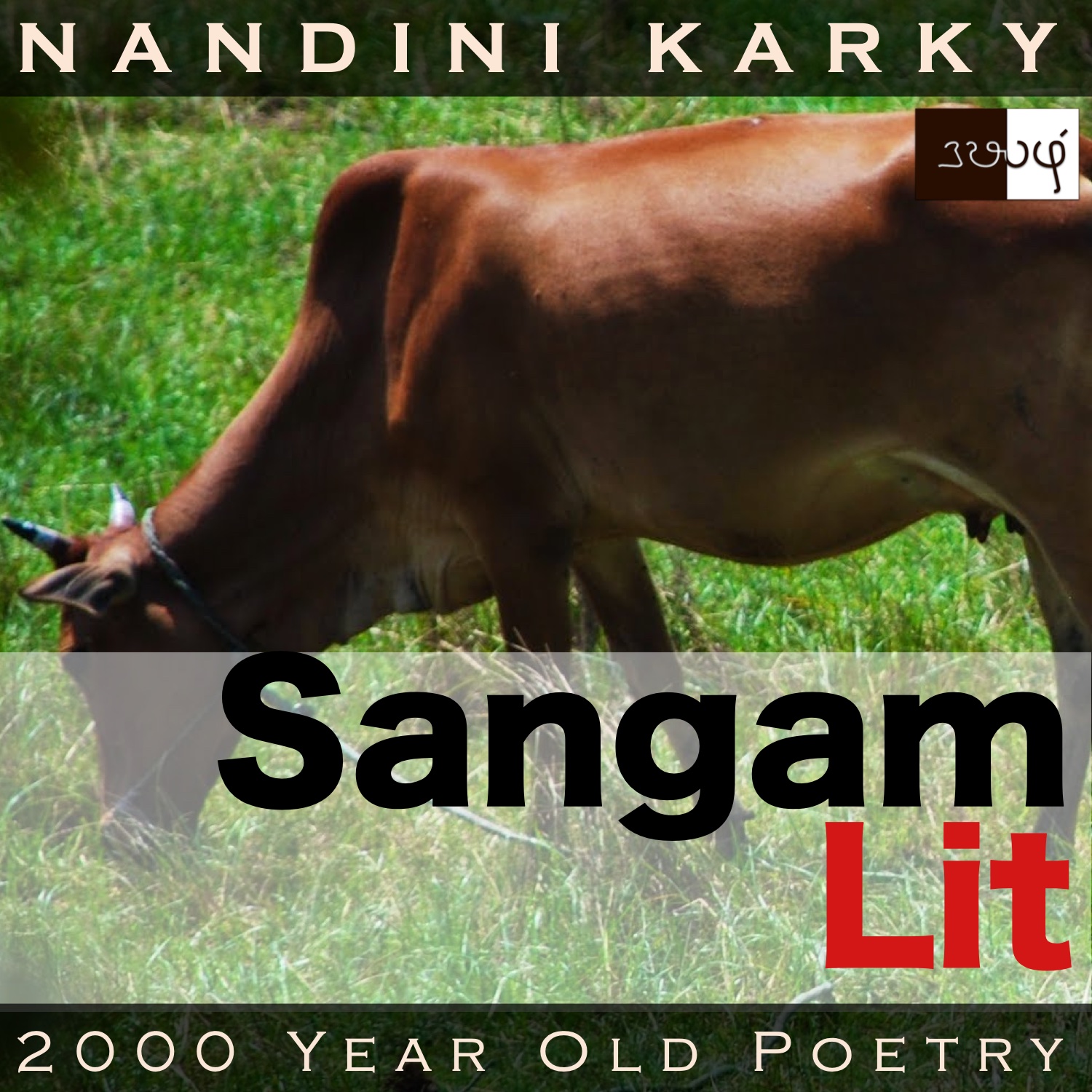Podcast: Play in new window | Download
Subscribe: Apple Podcasts | Spotify | Amazon Music | Android | iHeartRadio | Email | TuneIn | RSS | More

In this episode, we perceive a realistic portrait of the abstract emotion of love, as depicted in Sangam Literary work, Kurunthogai 204, penned by Milaiperunkanthanaar. The verse is situated in the hills of ‘Kurinji’ and speaks in the voice of the man’s friend to the man, in response to the man’s recent changed state.
‘காமம் காமம்” என்ப; காமம்
அணங்கும் பிணியும் அன்றே; நினைப்பின்,
முதைச் சுவற் கலித்த முற்றா இளம் புல்
மூதா தைவந்தாங்கு,
விருந்தே காமம்-பெரும்தோளோயே!
A voice in this verse explains ‘What love is’! The opening words ‘காமம் காமம் என்ப’ meaning ‘they say, ‘love, love’ subtly convey the speaker’s exasperation about the importance accorded to love. In ‘அணங்கும் பிணியும் அன்றே’ meaning ‘not an afflicting illness’, there’s the common Sangam practice of defining what is, by what it isn’t. ‘முற்றா இளம் புல்’ meaning ‘unripe young grass’ brings before the eyes, little green stalks popping out of the ground. The word ‘மூதா’ holds within a sketch of ‘an old cow’. Ending with the words ‘பெரும்தோளோயே’ meaning ‘O man with broad shoulders’, the verse welcomes us to listen in.
What does love have to do with young grass and old cows? The context reveals that the man had met the lady and fallen in love with her. As new love rushes through him, he becomes a changed person. Observing this change, the man’s friend says to the man, “‘Love, love’…they go on about love. Love is not an affliction that possesses you from within or without. If you think about it, akin to how an old cow strokes the immature, young grass that flourishes on an ancient hillock, love is a novelty, O broad-shouldered one!” With these words, the man’s friend explains the true nature of love, nudging the man to return to the state, worthy of his stature.
A tiny verse that attempts to hold within, the mountain that love seems to be! The man’s friend starts by talking about what other people say about love. Perhaps, he means they glorify it a lot, or attribute strange powers to it. Next, he goes on to say what love isn’t, describing that it is neither something that attacks you from the outside, like an angry spirit, nor is it something that attacks you from inside, like an unexplainable illness. To make the man understand these abstract qualities at a moment’s glance, the friend narrates a little scene on an ancient, rugged hillock. Here, tiny, immature shoots of grass seem to be sprouting all over. Upon this hillock, arrives with difficulty, an old cow. Seeing these tiny shoots of grass, the cow heads there to roll its tongue over. After narrating this scene, the friend turns to the man and says, that’s what love is – It’s a novel feeling in your head and concludes by calling the man as ‘one with huge shoulders’.
That epithet may be brushed off as a way of addressing the man but if we look carefully, the friend is gently pointing to the manly qualities of the man. He’s saying you have great responsibilities on your huge shoulders, and warns him not to forget that, losing himself over nothing. When the friend refers to the old cow on the hillock, he wants to focus on the fact that this cow is not really eating the grass and getting joy out of it. Rather, it just rolls its tongue and the cow’s mind seems to fill the rest. In effect, the friend is telling the man, ‘It’s all in your head!’ What the friend wants to strongly tell the man is this: ‘Don’t you say, what love is, and what love does, is something beyond my control. But no matter how much the friend intellectualises what love is, in this manner, I doubt that it will have any effect on the man when he’s in the throes of those rushing emotions. Later, when he’s older, perhaps his friend’s words will make sense. While that may be the man’s reality, the verse seems to say to us that there is no love but what you bring in your heart and that’s something to think about, isn’t it?




Share your thoughts...